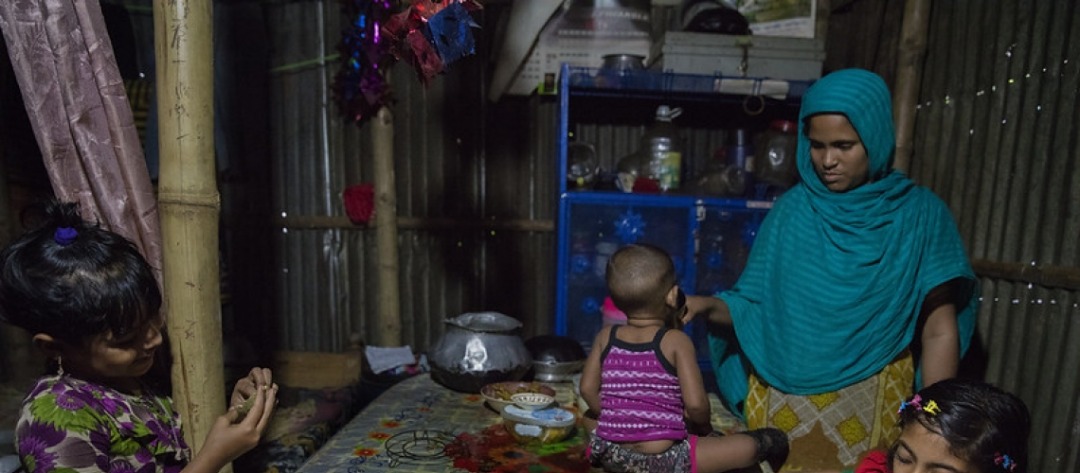Parasite, the acclaimed winner of Palme d’Or for best film at the 2019 Cannes Film Festival and Hollywood’s Academy Award for Best Picture, is a black comedy about a poor family living in a cramped, dark, and damp semi-basement apartment in Seoul – the plight of hundreds of thousands financially struggling residents in the city. The family cooks up an elaborate, often hilarious scheme to improve their living conditions. Mayhem ensues, and so does housing inequality.
But for the billions of people living in similar or worse conditions worldwide, this is no laughing matter. Meanwhile, disasters and climate change are destroying an increasing number of dwellings, leaving an estimated 14 million people homeless each year.
Already, governments around the world are scrambling to fill the housing gap by building new houses in partnership with the private sector. In most developing countries, however, two out of three families simply need a better home, not a new one.
, an issue that gets little attention – and funding – when housing policies are made. In fact, studies have shown that inadequate, risky, and overcrowded housing affects mental health in at least three major ways:
- In many cultures, personal identity is closely tied to how well people live. The home has become a medium of self-expression and self-identity. Poor housing conditions not only can affect physical health, but also undermine self-esteem – while home improvements are likely to build self-confidence.
- Living in crowded conditions not only limits privacy but also risks inflaming family relationships – up to the point of domestic violence. Studies of overcrowded housing reveal an increase in conflicts among couples and between siblings. High housing costs are also a major issue, with one in four adults suffering from stress of paying their rent or mortgage.
- Families surviving disasters often experience severe PTSD, not only due to the trauma of the event but also the displacement that often follows. In fact, nearly one quarter of earthquake survivors suffer from PTSD. The mental and emotional impact of highly devastating earthquake has been called “the other invisible disaster,” as many experienced in the 2010 Haiti earthquake that killed over 200,000 people and the 2019 Nepal earthquake that left 700,000 homeless. Reconstruction alone simply cannot build back what was lost.
What can cities do to improve housing conditions and build healthier communities for all? Three ideas:
First, support home improvements to achieve better health outcomes. Simple, relatively cheap fixes can make a big difference, such as installing screen windows to fight mosquito-borne malaria and investing in insulation against cold and heat. Studies have shown that eliminating dirt floors dramatically reduces childhood diarrhea and parasitic infections while reducing stress for mothers. Businesses are emerging to address these needs. In Rwanda, for example, start-ups are already at work paving dirt floors in order to halt the spread of diseases.
Second, make buildings stronger and more resilient. As the saying goes, “earthquakes don’t kill people; buildings do.” Home improvement programs need to immediately address structural deficiencies before the next disaster strikes. Affordable new technologies are available to identify buildings at risk and apply preventative measures. If machine-learning algorithms can assist oncologists in detecting cancer, they surely can turbo-charge the efforts of even the best engineers at identifying vulnerable structures.
Third, upgrade neighborhoods to make cities a better home for all. Improving infrastructure at the neighborhood level in poor communities is known to have positive impacts on health. Beyond simple upgrades, city planners should improve low-income populations’ access to green and public spaces, which proved to have a significant impact on mental health. Though housing budgets are stretched, governments should factor in the social costs of poor living conditions for children, whose potential can be stymied by overcrowding, domestic violence, and depression. To increase community wellbeing, countries like Mexico and Colombia are leading by example with programs underway to integrate and empower marginalized groups, including migrants and refugees.
Safe and affordable housing is a universal right. It is also essential to solving a growing global mental health crisis, which experts estimate would eventually cost the global economy $16 trillion by 2030. Whether we look near or far ahead, it is imperative for policymakers to adopt holistic housing strategies that focus not only on overcoming housing shortages, but also on improving the quality of the existing homes.
BY LUIS TRIVENO & OLIVIA NIELSEN




